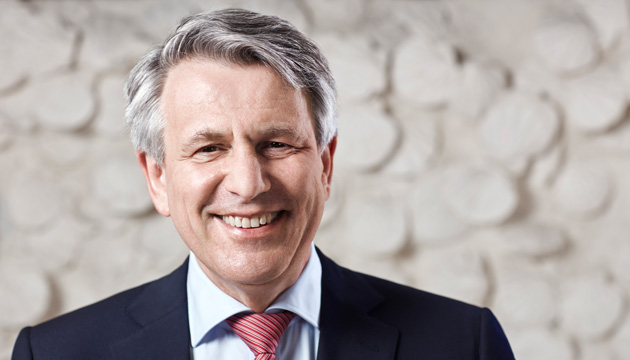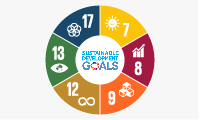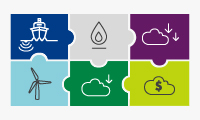Introduction from the CEO
In 2017, the world continued its efforts to meet the dual challenge of rising energy demand and tackling climate change. The landmark UN Paris Agreement has set the planet a clear direction of travel towards a low-carbon future.

"We, at Shell, think long and hard about our role in the transition to a cleaner energy future and the steps needed to create a sustainable world economy."
Getting there will mean providing much more energy with much less carbon dioxide (CO2). It will need collaboration between business and civil society. Beyond widespread support for the Paris Agreement, there will need to be strong government policies to drive behaviour towards its targets.
The challenge is clear. Large parts of the world’s growing population still live without access to safe, reliable and affordable energy. As living standards rise, energy demand could double over the course of the century. The world is going to have to make meeting this demand part of the approach to cutting emissions. All this change offers huge opportunities to break new ground in low-carbon energy solutions and technologies.
We, at Shell, think long and hard about our role in the transition to a cleaner energy future and the steps needed to create a sustainable world economy. We continue to put respect for people, their safety, communities and the environment at the heart of our approach.
Thriving through the energy transition
In 2017, we announced our ambition to cut the net carbon footprint of the energy products we provide by around half by 2050 in step with society’s drive to align with the goals of the Paris Agreement. This is an industry-leading aspiration that may need periodic recalibration in line with the pace of change in broader society and the wider energy system.
As an interim step, by 2035, we aim for a reduction of 20% based on our expectation of society's movement toward meeting the goal of the Paris Agreement. This includes emissions from Shell's operations; emissions of third parties who supply energy for that production; and our customers' emissions from their use of the products we sell. This means we aim to help our customers reduce their own emissions through the solutions we offer.
To meet this ambition, we will step up many of our existing activities. That means bringing more biofuels, hydrogen and electric vehicle charging into the mix; more renewable power; and helping to advance technology to capture CO2 emissions and store them safely underground. We will also use natural solutions, including forests and wetlands, to help naturally absorb emissions from uses where alternatives do not yet exist or will take time to reach commercial scale. We will produce more natural gas, the cleanest-burning hydrocarbon, and make it a priority to reduce leakage of the potent greenhouse gas methane from our gas operations.
Our continued financial resilience is vital if we are to play a successful role in the energy transition. We are working with the Task Force on Climate-related Financial Disclosures (TCFD), which in 2017 published recommendations calling on companies to give more information about how they assess and manage climate-related risks. The 2017 Annual Report and other publications aim to complement our 2017 Sustainability Report in responding to the TCFD recommendations, including discussing the energy transition and our portfolio resilience.
Our contribution to society
The 2017 Sustainability Report sets out in detail our contribution to society. This includes how we play our part in achieving the UN’s sustainable development goals, which seek to address the world’s biggest challenges, from ending poverty to improving health and education to making cities more sustainable.
We work to do the right thing. Firstly, we continue our relentless focus on working with communities and managing our impact on the environment. This means in Nigeria, for example, addressing environmental challenges related to oil spills in areas with significant oil theft and illegal refining. We saw progress in 2017 with vital clean-up work starting in Bodo, an area affected by oil spills from various sources. In the Netherlands, we are working hard with our partners to find solutions to the problems caused by earthquakes as a result of gas production in Groningen. We support the people of Groningen and will meet our responsibility.
Secondly, we help provide the energy products that light, heat and cool homes and businesses, as well as providing the energy that transports and connects people, goods and services. We deliver products that contribute to people’s quality of life and, where viable, provide energy to those who lack enough access to it.
Finally, we continue to play a positive role in communities and wider society. This includes providing employment, education and paying taxes. It is about being a good neighbour. In 2017, for example, I was heartened by the courage and determination of Shell employees who helped those caught in the devastation left by Hurricane Harvey.
Operating safely
Our goal is to work without causing any harm to people and the environment. However, we had two fatalities in 2017: a contractor died in a road accident in Alberta, Canada and there was a fatality due to a security incident in Port Harcourt, Nigeria. This is unacceptable. Safety in our operations is our top priority and we work to ensure staff and contractors are alert to their own safety, care about the safety of their colleagues and look out for any potential safety risks in our operations, however small. We need to continue to assure our plants and projects operate safely, particularly by improving our safety behaviour and enabling employees to quickly report incidents or potential incidents when they occur.
I was deeply saddened by a road-tanker incident in Pakistan in 2017. In this tragedy, which was outside the scope of Shell's safety reporting, a vehicle operated by a contractor overturned, spilling fuel that subsequently ignited and caused more than 200 fatalities and injured a number of other people. Events such as these underscore the importance of the continued focus on health and safety standards by all contractors, suppliers and employees.
The 2017 Sustainability Report
Once again, we appreciate the involvement of leading independent sustainability experts, which this year comes from the Report Review Panel. They have provided feedback that has helped our reporting become more balanced, relevant and responsive to the interests of our customers, partners and investors and made recommendations for Shell's future reporting.
We are a founding member of the UN Global Compact and continue to support its corporate governance principles on human rights, anti-corruption, environmental protection and better labour practices.
Sustainability is essential to the way we do business. Our Sustainability Report is an account of our progress in this area as we continue to deliver energy products society needs in the transition to a low-carbon world.

Ben van Beurden
Chief Executive Officer
 Sustainability at Shell
Sustainability at Shell
 Sustainable development goals
Sustainable development goals
 About our data
About our data
 Energy transition and climate change
Energy transition and climate change